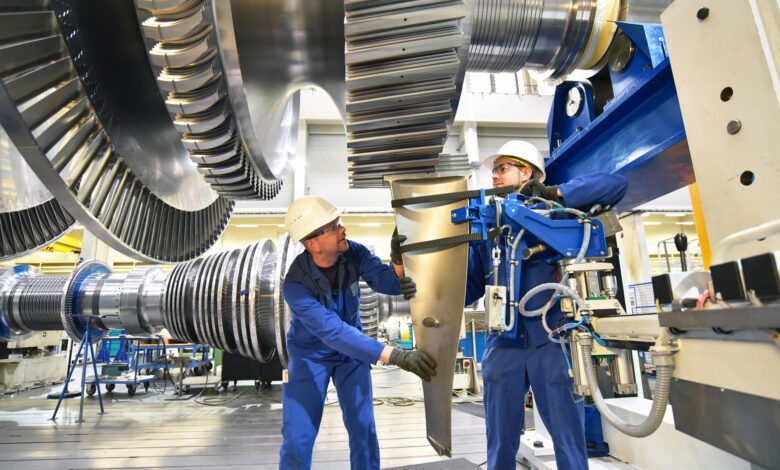
When it comes to industrial operations, ensuring that equipment is installed properly is crucial for the overall efficiency and longevity of machinery. Whether you’re setting up a new facility or upgrading existing machinery, selecting the right industrial equipment installation services is paramount. Here are five key factors to consider to make an informed decision and guarantee smooth operations.
1. Experience and Expertise
Experience plays a pivotal role when choosing industrial equipment installation services. You need professionals who are well-versed in installing the specific type of equipment you’re using. For example, the installation of heavy machinery or highly technical equipment requires advanced skills and knowledge. It’s essential to inquire about the company’s past projects and ask for case studies or references from previous clients to gauge their experience in similar setups.
Look for companies that have a long track record of providing reliable services in the specific industry you’re in, whether it’s manufacturing, construction, or any other industrial field. Companies with extensive experience are more likely to handle unexpected challenges during installation and ensure the equipment operates at its optimal level.
2. Certifications and Compliance
Certifications and industry compliance are critical aspects when hiring industrial equipment installation services. Depending on the equipment, there may be regulatory standards, local laws, and safety protocols that must be followed during installation. Reputable service providers will possess the necessary certifications and comply with all legal requirements. This ensures that the equipment is installed according to industry standards and minimizes the risk of non-compliance, which could lead to penalties, delays, or unsafe working conditions.
Before hiring, verify that the company is fully certified and adheres to industry-specific regulations. This will help ensure the safety and efficiency of the installation process, as well as the proper functioning of the equipment.
3. Customization and Flexibility
Every industrial operation is unique, which means that your installation requirements may vary depending on the scale, equipment type, and facility layout. A good industrial equipment installation service should offer customized solutions to fit your specific needs. They should be flexible and able to adapt to any challenges that arise during the installation process.
For instance, some projects may require special tools or adjustments to existing infrastructure. An experienced service provider will be able to tailor their approach to meet your particular needs and ensure that the installation process goes smoothly without compromising quality or safety.
It’s crucial to ensure that the installation service is open to collaboration and can work with you to modify their approach based on your equipment and facility specifics.
4. Safety Standards and Risk Management
Safety should always be a top priority when installing industrial equipment. An effective installation process involves more than simply setting up machinery — it includes ensuring the safety of the workers, the facility, and the equipment itself. A professional industrial equipment installation service will have clear protocols in place to manage risks associated with the installation process.
You should confirm that the company follows strict safety standards, including using the right safety equipment, ensuring proper handling of heavy machinery, and conducting safety checks throughout the installation. They should also have insurance coverage that protects both parties in case of accidents or damage during the installation process.
By choosing a service provider with a solid commitment to safety, you protect your assets, personnel, and production timelines.
5. Post-Installation Support and Maintenance
Once the industrial equipment is installed, the relationship with the installation service provider should not end there. Post-installation support is just as important. Ensure that the service provider offers ongoing maintenance and support, such as troubleshooting, repairs, and routine inspections.
Good industrial equipment installation services often include post-installation training for your team to ensure they know how to operate and maintain the equipment properly. This helps reduce the risk of operational issues in the future and increases the longevity of the machinery.
Ask about the company’s maintenance contracts, response times for issues that may arise, and the level of support they provide after the installation. A reliable service provider will be available for ongoing assistance and ready to help with any operational issues that may come up after installation.
Conclusion
When hiring industrial equipment installation services, taking the time to evaluate the experience, certifications, flexibility, safety standards, and post-installation support of potential service providers can make all the difference. A professional and reliable installation service ensures that your equipment runs smoothly, your operations are efficient, and you avoid costly errors in the long term. By keeping these factors in mind, you can confidently select the best installation service to meet your needs and provide a successful, hassle-free installation.
Here, you can read more Articles


